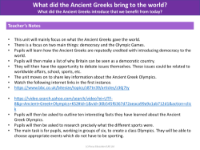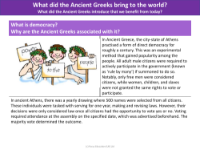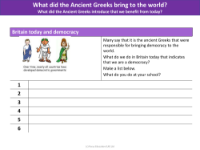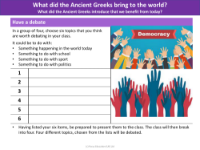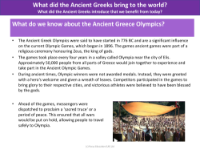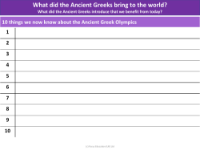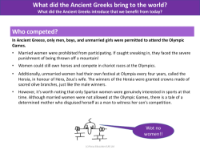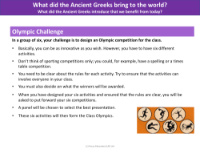What did the Ancient Greeks introduce that we benefit from today? - Presentation
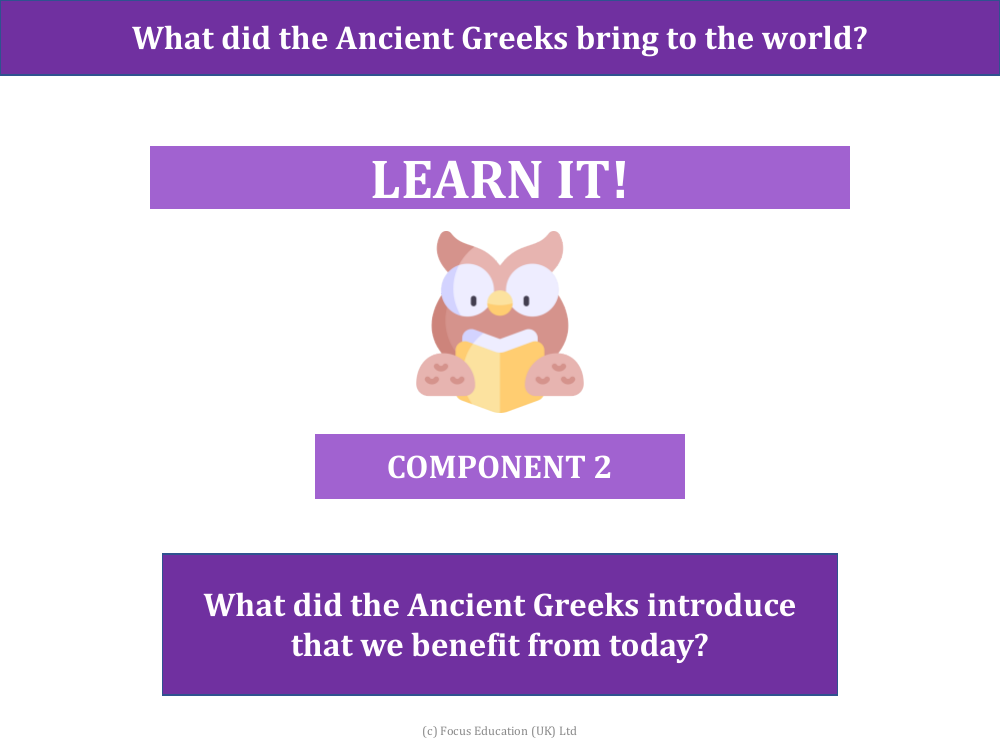
History Resource Description
The Ancient Greeks are celebrated for their enduring contributions to the modern world, particularly the introduction of democracy and the Olympic Games. This educational unit delves into how the Ancient Greeks are credited with the concept of democracy, a system where all adult male citizens were expected to participate in governance, a practice known as 'rule by many'. The unit encourages pupils to explore the parallels between ancient democratic practices and modern Britain, prompting them to list aspects that signify Britain as a democratic nation. The unit also involves pupils in debates on various topics, allowing them to exercise their democratic skills in a school environment.
Furthermore, the unit examines the origins of the Olympic Games, which began in 776 BC as a religious festival honouring Zeus. It highlights the significance of the ancient games and their influence on the modern Olympics, initiated in 1896. The pupils are tasked with researching and presenting ten interesting facts about the Ancient Greek Olympics, including the types of sports contested, such as running, discus, and chariot racing. The unit also addresses the exclusion of married women from the games, while noting the Heraia, an exclusive festival for unmarried women. The educational journey concludes with a creative assignment where pupils design their own class Olympics, incorporating a variety of activities that can engage all classmates, not limited to sports, demonstrating the lasting legacy of the Ancient Greek spirit of competition and community.
